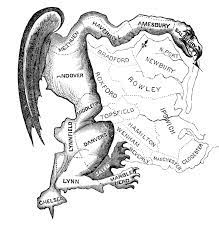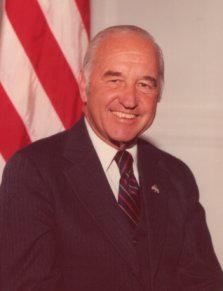Let us agree: People ought not be denigrated because they are Black or White or homosexual or because they consider themselves "gender fluid."
Recently, a boy who plays football at Exeter High School was suspended after a conversation he was having with another boy on a school bus was overheard and the girl who confronted him engaged him in a texting exhange with him, which she reported to the high school principal the next day.
The boy did three things, if online reports are to be believed:
1/ He maintained that there are only two genders: male and female. He posited this as a statement of fact or at least of his belief.
2/ He, or his parents, or some other people, justified his statements as "Christian belief."
This, of course, muddies the waters. We all would be better off if this never got injected into the argument. It would be cleaner if he simply said, "I'm not convinced there are more than two genders. That's my story and I'm sticking to it. You may disagree but you cannot make me believe differently. It's my right to disagree."
3/ He expressed frustration with the texts from his interlocuter by using an abbreviation for a profanity: STFU.
Some reports have claimed he was suspended for the profanity, but that would violate the most recent Supreme Court ruling on a similar case.
Significantly, he told the girl to "leave me alone." Since when does a bully say that?
In any event, he was not texting a transgender so he cannot be accused of bullying.
In fact, a case might be made the girl on the bus was bullying him.
Report from FOX News:
A female classmate identified as A.G. overheard them and allegedly chimed in, "There are more than two genders!" A.G. is neither transgender nor nonbinary but believes in gender fluidity, the suit says.
A.G. later obtained M.G.'s phone number, and the pair had a contentious exchange, the papers allege.
"Gender and sex mean the same thing," he wrote her. "There are only two genders and sexes."
She insisted that gender is different from the biological sex one is assigned at birth. "Your [sic] in high school you should know this," she shot back.
"I also know that ur a bozo," he replied. "Just stfu and leave me alone," he wrote, according to the lawsuit.
The next day, M.P. was pulled out of his science class by the vice principal and his football coach, William Ball.
The pair confronted him with the text messages A.G. had turned over and chastised him for "not respecting pronouns."
Here are some issues raised by this kerfuffle:
1/ LEGAL/ADMINISTRATIVE:
There are questions about
a/ Why the student was suspended from playing in a football game:
Reports thus far do not show the texts between the football player and the girl who accosted him on the bus, but we are told in some reports he was called into the principal's office with his football coach and told he had violated the rule against disrespecting other students by refusing to use the proper pronouns.
b/ Who actually suspended the play, his coach or the principal?
Apparently, the school now says the coach suspended the player for not being a proper "role model" owing to his refusal to use the proper pronoun. This administrative sleight of hand gets the principal off the hook and makes the coach the enforcer. But the same offense is still there, presumably, failure to pronoun properly. (The idea of football players being "role models" for kindly or noble or even civil behavior is a bit beyond the pale, one might think.)
And what gives the principal and faculty of Exeter High School the right to suspend a football player from playing in a game without a trial of that student before his peers or perhaps a panel of parents because he expresses doubts about forcing new rules for pronouns?
c/ Whether suspending the player from playing in a game is different than suspending him from school
There are lots of cases of students being suspended for violating stated school rules: In Tinker, in 1969, a girl was suspended for wearing an armband to protest the Vietnam war and the Supreme Court said students do not leave their right to free speech at the school house door. Later, in the infamous "Bong Hits for Jesus" case, the Supreme Court reversed this. Later still the Court held for a girl who expressed her rejection of the school cheerleading squad in profane terms.
2/ CULTURAL:
a/ What is the basis for a legal prohibition of a transgender male to female person who has not had "gender affirming surgery" i.e., still has scrotum and penis stripping naked in a "girls' locker room"?
There are laws against public nudity. A man or a woman walks down the street or into a store completely naked; he or she does not touch anyone, may not even speak to anyone, so how can their very presence cause harm? Well, we do accept this would make people uncomfortable, but what is the harm? If you accept laws on public nudity are appropriate, then why would laws against a male transexual undressing in a girls's locker room be unacceptable?
b/ What harm is done to a transgender person if others refuse to refer to that person as "her" or "him" or "they" and what harm is done to those who are asked to use those pronouns as the transgender person requests?
Now, if you say the principle is everyone deserves to be called by the name they wish to be called by, the case of Cassius Clay and Muhammed Ali springs to mind. As Howard Cosell, ne` Howard Cohen, famously said of Ali, "A man has a right to be called by the name he wants to be called by." And I agreed with that. Is it not a right for a person who was born with a penis and testicles to be referred to as "she" or "her" if he wants to be? No, that is not a name but requires a lot more mental gymnastics in the mind of the average citizen.
Thus, if Pat wants me to refer to her as "them" and I cannot get my mind around that and say, "Pat will not be at jazz band practice because she has a dental appointment," have I violated Pat, who in fact wants me to say, "Pat will not be at jazz band practice because they have a dental appointment?" Or should it be, "Pat will not be at jazz band practice because they HAS a dental appointment?"
We are not simply changing a name here, we are changing the agreement between singular and plural and that takes a lot more neurons.
By what right does Pat or the principal of Exeter High School force me to wrap my head around a new English language Genderspeak when I, as a high school student have spent 16 years learning a non gender fluid English and am, in fact, likely to face a whole different set of rules when I take my SAT exams?
Why is it "disrespect" to Pat rather than Pat's disrespect to me if I insist on using a set of pronouns I do not even think about now, which are lodged somewhere below my cerebral cortex when I use them? Why are Pat's sensitivities more important than my own?
3/ SCIENTIFIC:
a/ How is "biological sex" different from gender?
One of the things the girl confronting the football player said was that as a high school student, he should know that biological sex is different from gender. Which raises the question: Is there a course which covers this in sufficient detail at Exeter High School?
b/ What is "gender dysphoria" and what is a transexual?
Whereas we do not know what the prevalence of homosexuality in the nation is--it has been variously estimated between 3% and 10% (Kinsey, now mostly discounted)-- but the prevalence of transgender gender dysphoria is easier to grasp since most of these folks seek medical attention in Transgender Clinics, and this is said to be about 0.3%. So the numbers of transgenders are small and it may well be that most people have never actually met or gotten to know a transgender person.
Can we even begin to discuss the issue of gender dysphoria without first knowing something about normal sexual differentiation and about disorders of sexual differentiation? I would submit the answer is no. Until you know something about what happens in people whose known biochemistry is askew, it is very hard to imagine what folks with gender dysphoria may be going through.
 |
| Born female, penis at 12 |
Does Exeter High School even have a course in gender issues which covers the genetics, endocrinology and psychology of sexual differentiation, disorders of sexual differentiation and gender dysphoria?
Would the faculty or administration of Exeter High School pass a final exam in such a course?
 |
| Patients with XY chromosomes |
As an endocrinologist, in whose specialty this whole topic traditionally falls, I hereby volunteer to present such a course to the Exeter HS faculty and administration, open to every citizen of the Seacoast, if anyone cares to actually listen.
 |
| Gdansk, Poland |
Spoiler alert; If I taught the course, I would make the case that transgender folks should be treated with kindness, as should everyone, but Transgender Clinics have become profit centers and do not serve the best interests of the patients they see or the community at large.








































